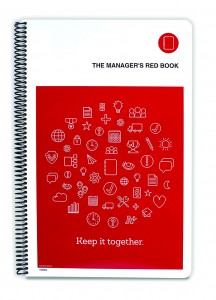In the game of football, each player gets a very specific outline of plays and each person’s responsibility. They practice until everyone understands their responsibilities and can execute the routine in sync.
On the field of play, however, all of these perfectly practiced passes or blocks can get lost in the shuffle. To keep your daily systems on track, you need an Operations Playbook reminding you of the plays (or routines and systems in place). The plays are items with approximate times at which the tasks should be performed that are organized into a logical sequence.
When you maximize your team’s effectiveness with an Operations Playbook, you free up time to do the things to move your business ahead:
- Planning
- Spending time with guests
- Teaching and coaching employees
And ultimately:
- Leaving work before you’ve hit the 50 hours per week mark
The best Operations Playbooks have the following characteristics:
Creates Consistency and Accountability
A good Operations Playbook clearly defines roles and responsibilities. It also establishes a standard process from shift to shift and from location to location. With a playbook, employees know their role, how they contribute to a successful shift and the performance metrics they will be measured against. As a manager, being able to handle the unknown and unexpected comes with the territory – but the the more gray area you can eliminate, the easier your job is. Having the right systems and tools will make managing the gray a little more black and white!
Improves Communication
Managers are bombarded with a ton of information during a shift, so how should they communicate crucial information to the rest of the team? If there’s an office full of sticky notes and messages scribbled on napkins, how do you know whether the right people are getting the right message?
An Operations Playbook helps facilitate communication across managers and teams. When you write shift notes in a central location and have a designated place for sign off, you can be confident that they got the message.
Tracks Critical Information
The best Operations Playbooks monitor numbers like sales, labor and food costs. They also provide a place to record what happened during the shift – was the weather bad, did a bus load of tourists come in or was there a special event in town?
Tracking both the quantitative and qualitative data will give you a better understanding of your business, help you develop goals, allow you to better manage your labor budget and give you the tools to control your food costs.
Not only should you use your Operations Playbook as a historical record of sales and other costs, use your book to monitor employee performance and compliance information that you may need to reference later.
Easy to Implement and Flexible
The purpose of your Operations Playbook is to streamline your organization and decrease the number of hours you work, not increase them. Train your managers how to implement the plays and clearly explain what kind of information you want them to capture and communicate.
You will always have to block and tackle distractions on a daily basis, but once you have the systems and tools in place, your team will be able to focus on the specific behaviors that maximize the effectiveness of the time and tools available. Keep with the Operations Playbook and in no time, your team will be a lean, mean operational efficiency machine.
The good news is you don’t have to start your playbook from scratch. There are tools already available that have been designed and perfected by restaurant experts. The Manager’s Red Book and the digital Logbook, provide you with tools that are proven to help you spend your time on the high-touch elements of training the team and enhancing the guest experience.



